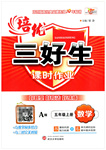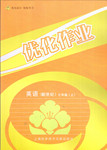题目内容
This is a great truth, one of the greatest truths.
It is a great truth because once we truly see this truth, we transcend(超越) it. Once we truly know that life is difficult---once we truly understand and accept it---then life is no longer difficult. Because once it is accepted, the fact that life is difficult no longer matters.
Most do not fully see this truth. Instead they complain about their problems and difficulties as if life should be easy. It seems to them that difficulties represent a special kind of suffering especially forced upon them or else upon their families, their class, or even their nation.
What makes life difficult is that the process of facing and solving problems is a painful one. Problems, depending on their nature, cause us sadness, or loneliness or regret or anger or fear. These are uncomfortable feelings, often as painful as any kind of physical pain. And since life causes an endless series of problems, life is always difficult and is full of pain as well as joy.
Yet, it is in this whole process of solving problems that life has its meaning. Problems are the serious test that tells us success from failure. When we desire to encourage the growth of human spirit, we encourage the human ability to solve problems, just as in school we set problems for our children to solve. It is through the pain of meeting and working out problems that we learn. As Benjamin Franklin said, those things that hurt, instruct. It is for this reason that wise people learn not to fear but to welcome the pain of problems.
小题1:From the passage, it can be inferred that ______.
小题2:The writer probably used just one short sentence in the first paragraph to ______.
小题3:According to the passage, we give school children difficult problems to solve in order to______.
小题4:The main idea of Paragraph 3 is that ______.
It is a great truth because once we truly see this truth, we transcend(超越) it. Once we truly know that life is difficult---once we truly understand and accept it---then life is no longer difficult. Because once it is accepted, the fact that life is difficult no longer matters.
Most do not fully see this truth. Instead they complain about their problems and difficulties as if life should be easy. It seems to them that difficulties represent a special kind of suffering especially forced upon them or else upon their families, their class, or even their nation.
What makes life difficult is that the process of facing and solving problems is a painful one. Problems, depending on their nature, cause us sadness, or loneliness or regret or anger or fear. These are uncomfortable feelings, often as painful as any kind of physical pain. And since life causes an endless series of problems, life is always difficult and is full of pain as well as joy.
Yet, it is in this whole process of solving problems that life has its meaning. Problems are the serious test that tells us success from failure. When we desire to encourage the growth of human spirit, we encourage the human ability to solve problems, just as in school we set problems for our children to solve. It is through the pain of meeting and working out problems that we learn. As Benjamin Franklin said, those things that hurt, instruct. It is for this reason that wise people learn not to fear but to welcome the pain of problems.
小题1:From the passage, it can be inferred that ______.
| A.everybody has problems |
| B.we become stronger by meeting and solving the problems of life |
| C.life is difficult because our problems bring us pain |
| D.people like to complain about their problems |
| A.save space | B.persuade readers |
| C.get readers’ attention | D.make readers laugh |
| A.teach them to fear the pain of solving the problem |
| B.encourage them to learn |
| C.help them learn to deal with pain |
| D.teach them how to respect from problems |
| A.most people feel life is easy |
| B.most people complain about how hard their lives are |
| C.the writer feels life is easy |
| D.the writer likes to complain about his problems |
小题1:B
小题2:C
小题3:B
小题4:B
试题分析:
小题1:从第一段Because once it is accepted, the fact that life is difficult no longer matters结合全文可知我们一旦接受了生活很坚难的这个事实,然后不断的去面对,去解决生活中的问题,我们就会变得更加强大。
小题2:作者用一个简短的句子This is a great truth, one of the greatest truths,引起读者的注意,引起下文,这个伟大的真理是什么?为什么它是一个最伟大的真理?
小题3:从文章的最后一段。。。 just as in school we set problems for our children to solve. It is through the pain of meeting and working out problems that we learn可知我们给孩子设立难题就是就是要学会对付苦难。
小题4:从第三段Instead they complain about their problems and difficulties as if life should be easy可得知 大多数人抱怨生活的艰辛。
点评:本文论述了我们要学会接受生活很坚难的这个事实,然后不断的去面对,去解决生活中的问题,我们就会变得更加强大。本文集中考查推理题,对于考生在上下文中理解字里行间的能力要求较高。

练习册系列答案
 培优三好生系列答案
培优三好生系列答案 优化作业上海科技文献出版社系列答案
优化作业上海科技文献出版社系列答案
相关题目